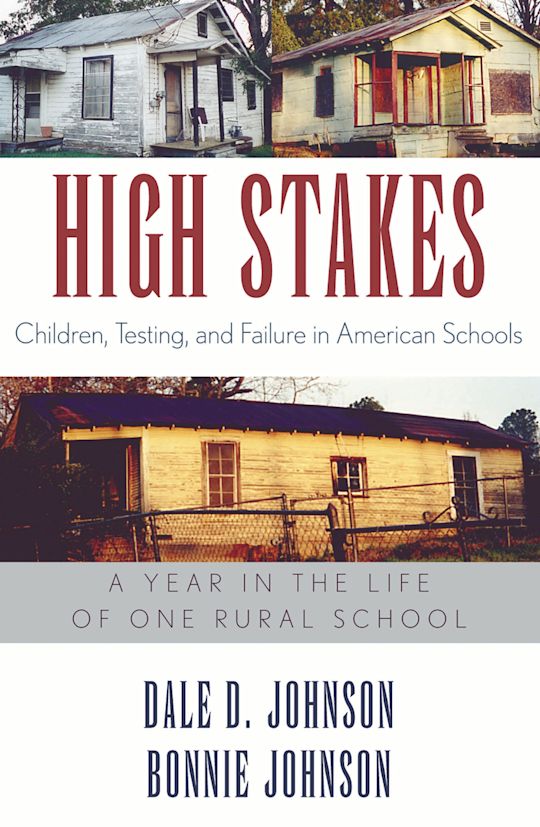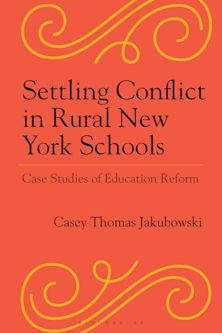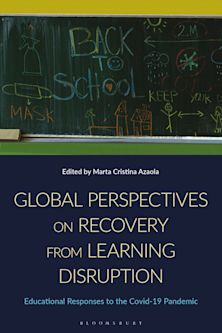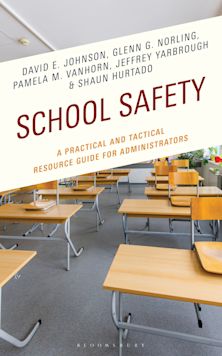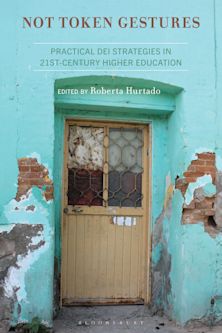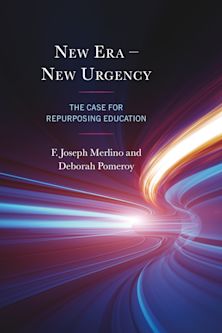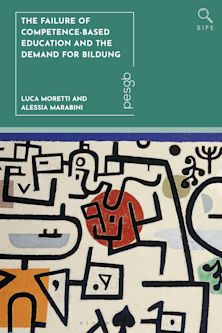- Home
- ACADEMIC
- Education
- Education Policy and Politics
- High Stakes
High Stakes
Children, Testing, and Failure in American Schools
High Stakes
Children, Testing, and Failure in American Schools
For information on how we process your data, read our Privacy Policy
Thank you. We will email you when this book is available to order
You must sign in to add this item to your wishlist. Please sign in or create an account
Description
High Stakes Testing, Poverty, and Failure in American Schools is a critical ethnography of one year in one of the most impoverished schools in America. Redbud Elementary School in Redbud, Louisiana has 611 students, 95 percent of whom qualify for free breakfast and free lunch. Many of the children who attend Redbud are the poorest of the poor. Their homes are substandard and include trailers, shotgun houses, and housing project apartments. Some lack electricity, running water, and flooring. Most of the children, 80 percent of whom are African American, live with a single parent, an aunt, or a grandmother who hold minimum-wage jobs. Many of the children do not receive medical or dental care. Their neighborhoods teem with alcohol and drug abuse. Several pupils have witnessed shootings and other types of violence. Louisiana was the first state and is now one of eight states in the nation that mandates failure and grade repetition for elementary and middle school students who do not pass an end-of-year high stakes test. The authors taught third and fourth grade full time for one school year at Redbud Elementary, and this book tells the story of that year. Three major themes are addressed throughout the book: the grinding effects of acute poverty on all aspects of life, the negative consequences of the continuing drive for higher test scores in public schools, and the unreasonable demands placed on children, teachers, and administrators. Other issues surface in the book: the rising growth of for-profit ventures feeding off the accountability movement, the developing alliances between policymakers and corporate profiteers, and the federal government's increasing domination of public schooling. Readers may note similarities between Redbud Elementary and underfunded public schools in their own states. The story of Louisiana's Redbud typifies the unfolding national tragedy in the way poor children are being 'educated' because of self-serving political and corporate interests.
Table of Contents
Chapter 2 Hayricks and Helicopters: The Realities of an Underfunded School
Chapter 3 September: The Children We Teach
Chapter 4 October: Regulating Teaching
Chapter 5 November: Drugs, Poverty, and Test Scores
Chapter 6 December: "Clamp Down"
Chapter 7 January: Test Preparation-The Pace Quickens
Chapter 8 February: Pep Rallies for Tests
Chapter 9 March: Test-Day Traumas
Chapter 10 April: Freedom to Teach and Learn
Chapter 11 May: "I Don't Want to Spend My Time on Paperwork"
Chapter 12 How Can We Build a Better Future? Recommendations for Policy Change
Product details
| Published | 14 May 2002 |
|---|---|
| Format | Ebook (Epub & Mobi) |
| Edition | 1st |
| Extent | 240 |
| ISBN | 9781461637295 |
| Imprint | Rowman & Littlefield Publishers |
| Publisher | Bloomsbury Publishing |
About the contributors
Reviews
-
High Stakes: Children, Testing and Failure in American Schools is a compelling read. It presents a dramatic picture of what it's like to be a teacher or a student in schools where grinding poverty is the overarching reality. The reader will also find convincing evidence that schools are burdened with high expectations that are not receiving the significant levels of funding and professional development they need. This book is a 'must-read' for all concerned professionals, policy makers, and parents. It will make you angry, it will make a difference.
Alan Farstrup, coeditor of What Research Has to Say About Reading Instruction
-
High Stakes enables us to feel, see, and experience first-hand the privilege and oppression of high stakes testing. The Johnsons explain how and why there is daily suppression of real teaching and learning. The voices of the children that the Johnsons taught remain with you long after you close their book.
Carl A. Grant, Hoefs-Bascom Professor, University Wisconsin-Madison, From The Foreword
-
A critical, passionate, firsthand account of the 2000-01 school year in a Redbud, LA, elementary school. The authors challenge the effectiveness of using standardized tests to make decisions in a school that lacks basic amenities and suffers from excessive student and teacher stress. They provide numerous examples, clear descriptions, and a deep appreciation for the role of teachers to illustrate the dire consequences of this emphasis on testing. The closing chapter offers recommendations for concerned professionals, policymakers, and parents. Education collections in both public and academic libraries would be strengthened by the addition of this clear, research-based discussion.
Library Journal
-
High Stakes is a poignant look at the reality of public schools today.
The Louisiana Weekly
-
A book so compelling that it just might become a classic.
American School Board Journal
-
What we haven't heard in some time, though, is a first-person account of schooling this harrowing and honest. Let's hope that High Stakes finds readers in high places.
Teacher Magazine









